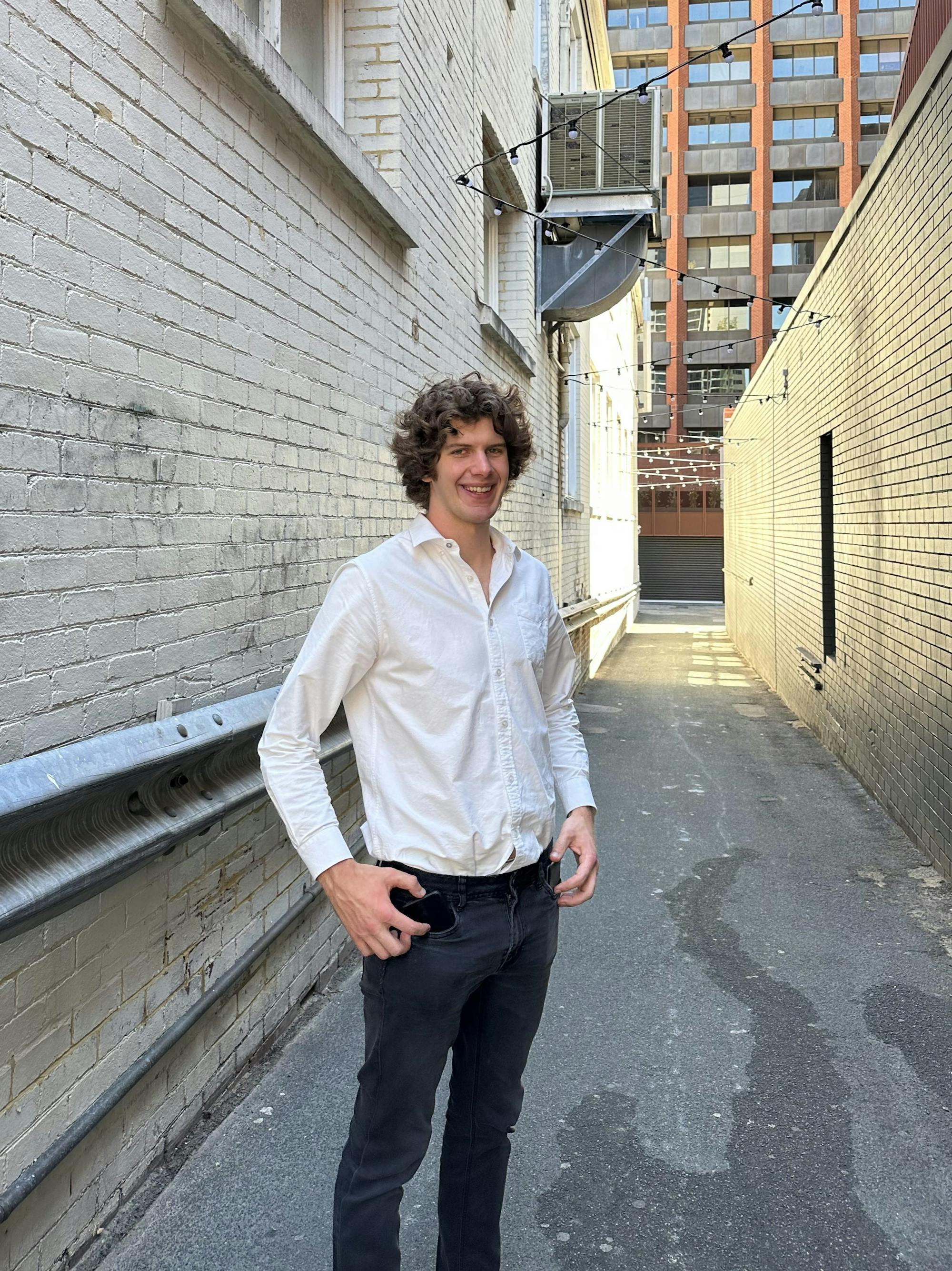Asher Bettison, a UWA undergraduate student majoring in Business Law and Chinese Studies, recently helped Karratha Central Healthcare develop training to improve cultural competence for staff working with patients from culturally and linguistically diverse (CALD) backgrounds.
One of 12 UWA students to undertake McCusker Centre for Citizenship internships in regional WA this summer, Asher said he had witnessed the extraordinary challenges faced by CALD communities in regional and remote regions compared to the Perth metropolitan area.
“I developed a draft of a training module for healthcare workers in the disability sector, which aims to enhance their cultural competence,” Asher said.
“The training is focused on rural and remote contexts and addresses some of the intersecting challenges that clients from CALD backgrounds face; it is often those who are hardest to reach through the traditional mechanisms of the healthcare system that need healthcare the most.
“This training module aims not only to bring awareness but also to strengthen the capacity of healthcare workers to deal with these circumstances,” he said.
The internship role was created through the collaborative efforts of Karratha Central Healthcare and UWA’s WA Centre for Rural Health (WACRH), and Asher worked closely with WACRH Social Work Lecturer Prudence Martawidjaja and Associate Professor Rohan Rasiah.
Megan Hickie, Karratha Central Healthcare Clinical Lead, said that Asher was an invaluable help in developing the online learning module, which is one of five modules being created for the Remote Ready Program, funded by the Australian Government’s Department of Social Services via National Disability Services.
“Asher’s contributions to the development of this learning module will have a lasting impact on the skill of disability workers in the Pilbara and the support they provide to members of the community,” Ms Hickie said.
Asher said that the internship experience had given him new perspective on working with diverse communities.
“As one study puts this, it may be beneficial to assume that western healthcare systems conflict with other systems – and not the other way around - there are many elements of the healthcare system which are culturally specific to Australia and may make it difficult or intimidating to navigate for CALD communities.
“Each community requires its own unique and tailored approach, and that there is a great deal of diversity within each community in Australia.
“For me, the most rewarding part of my internship has been seeing the tangible results of the work I’ve been doing come together in the training module - knowing that the work I contributed to will improve the quality of care for culturally and linguistically diverse patients in rural and remote settings is itself a reward,” he said.
As a student with “admittedly obscure” academic studies, Asher valued the experience to apply his knowledge and skills to a real-world situation.
“Practical experience in project delivery, community engagement, research, and working in an environment that was unfamiliar to me has all been valuable, and these skills will no doubt be useful in the future.
“I would highly recommend a McCusker Centre internship to other students; the hands-on experience, coupled with the opportunity to make a positive impact on the community, is invaluable.”

